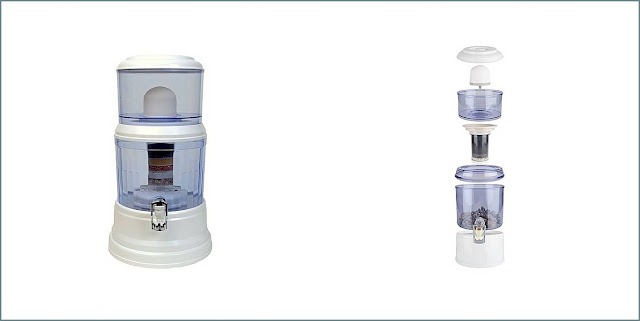Waterborne diseases are conditions caused by pathogenic
micro-organisms that are transmitted in water. These diseases can be spread
while bathing, washing or drinking water. They are also spread through eating
food exposed to infected water.
Drinking contaminated water can cause waterborne diseases
like cholera, typhoid & dysentery.
Cholera
Cholera is an infectious disease that causes severe watery
diarrhea, and can lead to dehydration and kill within hours if left untreated.
Cholera is transmitted by a bacterium called Vibrio cholera. It is usually found in
water or food sources that have been contaminated by feces from a person
infected with cholera.
People with low immunity – such as malnourished children or
people living with HIV – are at a greater risk of death if infected.
Typhoid
Typhoid (Typhoid fever)
is a disease caused by a bacterium called Salmonella
Typhi.
Its symptoms may vary from mild to severe and usually become
noticeable 6-30 days after exposure. They include a feeling of weakness,
abdominal pain, constipation, and headaches.
Dysentery
Dysentery refers to an inflammation of the intestines spread
by contaminated food or water. It is caused by the bacterium Shigella bacillus.
The symptoms of dysentery can be mild or severe. They
include bloody diarrhea, stomach aches, cramping, mucus in the faeces, watery
diarrhea, nausea, vomiting, and fever. Prompt medical care is required for
bloody diarrhea.
Waterborne diseases are very prevalent in areas with poor
sanitation, like slums. People living in such deplorable conditions don’t
always get clean water for drinking, cooking, cleaning or using the bathroom!
Dark drainage water runs through the narrow dirty paths where children are often found running around playing. Many are the times these children will bend down to poke around the contaminated water oblivious of the danger lurking around!
But where are the parents, you would ask?
Well, they are busy struggling to eke a living. Every coin
that can be earned is like gold. Every penny counts! They don’t have all the
time in the world to keep checking on the little ones. But even if they did
have all the time, what could they possibly do to prevent contamination? Unless
they decide not to let their children go out to play with the others!
In many areas of the slums, raw sewage passes through right
at the doors of the dilapidated houses.
Prevention & Treatment
The long-term solution to water contamination is to ensure proper
sanitation and consumption of pure drinking water.
Modern & highly effective sewage and water treatment
techniques have been employed in most industrialized nations, and this has greatly
eliminated waterborne diseases among its people.
Each household needs to ensure that they’re getting clean
water from the taps. And in case there are doubts about the purity of this
water, then other methods could be employed like installing an efficient filtration
system throughout the house. This system would filter all incoming water before
it comes out through the taps.
However, this filtration system method is not ideal for
everyone, and it may be too costly for some households. A cheaper option would
be to purchase
a water distiller.
Bottled water also works pretty well, although in recent
times there have been reports of unscrupulous people packaging unfiltered water
in branded bottles and selling to unsuspecting consumers! So it’s best to buy bottled
water only from trustworthy companies.
Another effective way to ensure consumption of safe water is
by boiling. This kills most if not all bacteria in the water. Make sure you
bring the water to a complete boil.
You should also make sure that you use safe water for brushing
your teeth. You may assume that you’re only going to be brushing your teeth for
a few minutes, but that little time is enough to infect you with a waterborne-causing
microorganism.
Proper Sanitation
There are a few steps to take to ensure proper sanitation is
maintained:
- Every household has a right to proper sanitation & proper disposal of sewage.
- All broken drainage systems need to fixed as soon as they are noticed to prevent raw sewage running through open ground.
- Always wash your hands with soap and clean water after visiting the toilet, after changing a baby’s diaper, after attending to a sick person, before preparing food and before eating.
- Clean all kitchen utensils & surfaces with clean water & soap. Disinfect your house every few weeks.
- Discourage children from swimming or playing in dirty pools, ponds or streams.
Treatment
Most waterborne diseases can be treated easily if the
infected person seeks medical intervention quickly. Rapid access to treatment
is especially important in the case of a cholera outbreak.
An oral rehydration solution is usually administered by a
health care provider. This solution is used throughout the world to treat
diarrhea. It is made up of sugar and salts mixed with water & drunk in
large amounts.
The infected person also needs to take a lot of fluids in
addition to the medication prescribed. This helps replace most of the fluid lost
due to diarrhea, a major symptom of waterborne diseases.
Sources:





Comments
Post a Comment
Leave a comment here